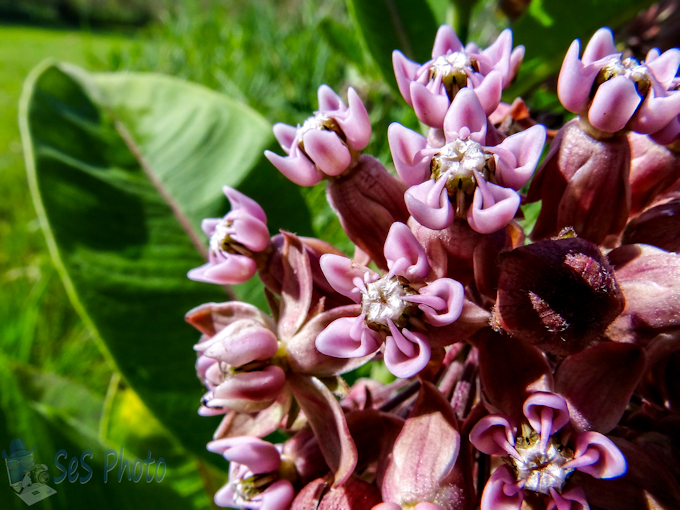The monarchs are gathering as they prepare to head south while their favorite food, the milkweed, is turning brown as the seeds begin taking their own flight in the wind.
Milkweed Seeds
Spending time outside was more bearable today with temperatures above freezing but since snow still covers the ground, there are not any wildflowers to be found, or at least not growing ones. Dried flower heads and seed pods are about all that can be spotted during a hike. These remaining dry milkweed pods are leaning a bit from the winter winds but there are a few seeds haven’t gone sailing yet.
January Milkweeds
The winds of November help to disperse the milkweed seeds as they float in the air with their hair-like parachute. And there might not be any seeds left to fly after the next couple of gusty days and some of the seeds might be carried to unfriendly places and won’t be able to grow but some might find a suitable location and start a new colony of milkweed plants.
Milkweed Seeds
The milkweeds are starting to bloom and the milkweed is important to many species, especially the monarch larvae which appears to feed exclusively on milkweeds and the monarch butterflies need the milkweed to lay their eggs.
Some people eat the milkweed flowers, using them in stir-fly, soup, casseroles and other dishes (after you wash the bugs out first). I prefer to just look at them and take pictures of the blossoms instead of eating them and I will leave them for the monarchs butterflies instead.
Milkweed Blossom

The milkweeds are blossoming and some people eat the blossoms when they are small. The shoots and pods are also eaten but I think I will leave the milkweeds for the Monarch Butterflies to enjoy. Native Americans employed the stalk fibers for making string and rope as well as using it as a food source.
Milkweed Blossoms
While looking at milkweed plants in search of a Monarch caterpillar, I spotted these caterpillars that looked like variegated yarn instead. They were munching on the milkweed and when I looked them up later, I found out they are caterpillars of the Milkweed Tussock Moth so I guess that is why they were on my milkweeds.
Both the Milkweed Tussock Moth and Monarch caterpillars have similar color scheme of black, yellow / orange, white stripes. The colors advertise to predators the toxin they incorporated from the milkweed diet.
But I much rather see a Monarch butterfly flying around than a Milkweed Tussock Moth so these little pieces of yarn better save some milkweed for the Monarch caterpillars since the Tussocks are communal feeders and will feed in large groups. I guess I was lucky that I only spotted three that day before finding one Monarch caterpillar.
Milkweed Tussock Moth Caterpillars